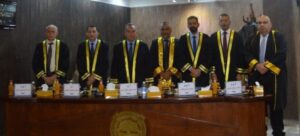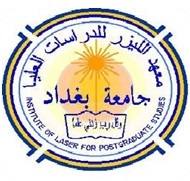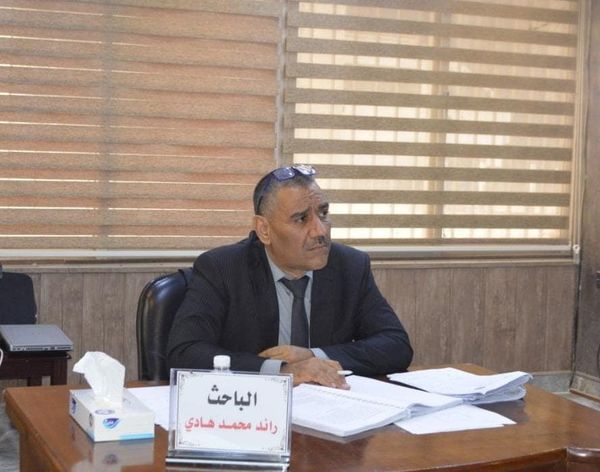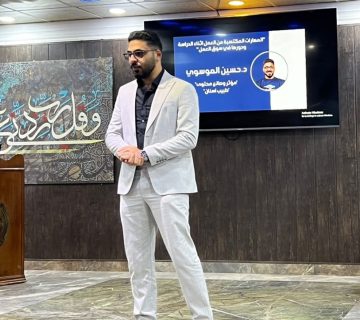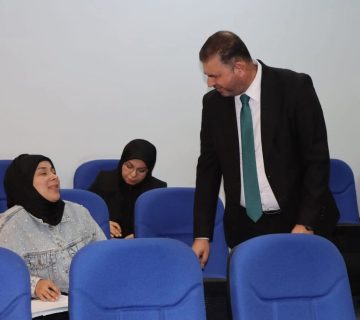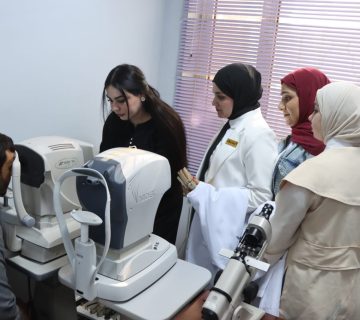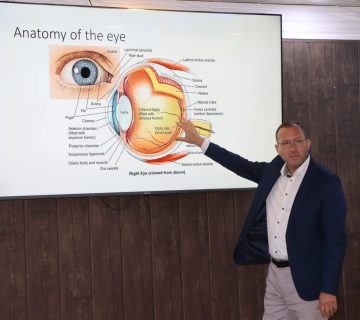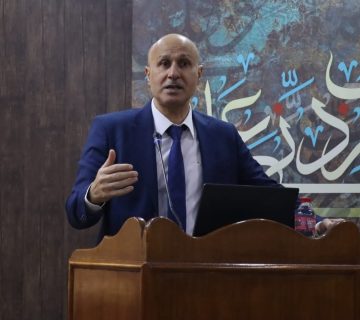Discussion of the Dissertation of PhD student Raed Muhammad Hadi / laser applications / mechanical engineering
The doctoral student Raed Muhammad Hadi’s dissertation / laser applications / mechanical engineering, was discussed for his entitled dissertation:
“Selective Laser Melting of Inconel 601 Alloy and 316L Stainless Steel with the Assistance of a Ytterbium Fiber Optic Laser with a Key to Quality Factor”
The discussion committee consisted of the professors whose names are listed:
1- Prof. Dr. Abd al-Hadi Mutashar Abd / PhD – Laser Plasma / Physics / Institute of laser for Postgraduate Studies / University of Baghdad / Chair person
2-Prof. Dr. Adel Khalil Mahmoud / PhD in Metals and Materials Engineering / Mechanics / College of Engineering / University of Diyala. / Member
3-Asst. Prof. Dr. Muhammad Karim Daher / Ph.D. Laser / Laser and Electro-optics/ Institute of laser for Postgraduate Studies/ University of Baghdad/ Member
4- Asst. Prof. Dr. Ahmed Riyad Abbas / Ph.D. in Mechanical Engineering / Laser Applications / Department of Laser Engineering and Optoelectronics / University of Nahrain / Member
5- Asst. Prof. Dr. Furat Ibrahim Hussein / Ph.D. Laser Applications – Mechanical Engineering / Mechanical Engineering / Al-Khwarizmi College of Engineering / University of Baghdad / Member
6 – Asst. Prof. Dr. Ziyad Iyad Taha / PhD- Laser / Mechanical Engineering / Institute of laser for Postgraduate Studies / University of Baghdad / Member and Supervisor
Where the aim of the study was to manufacture parts from super alloy 601 and stainless steel 316L with Nano-second fiber laser and the possibility of determining the required porosity of the part produced and according to the application
The study included manufacturing parts from Inconel 601 with a porosity ranging from 5-25% according to parameters 250 mm/s and a laser power of 80 watts and stainless steel 316L with a porosity of 10-30% at a speed of 75 mm/s and a laser power of 75 watts. This porosity is useful for medical applications such as implants and prostheses. Nano silicon carbide at an amount of 1%, 3%, and 5% was added to stainless steel using a nanosecond fiber laser device. The hardness ranged from 150 to 190 Hv. The second part of the work was manufacturing stainless steel parts. 316L stainless steel using continuous wave optical fiber and compared to stainless steel manufactured by traditional methods.
One of the most important recommendations of the study is:
By using a nanosecond fiber laser, the porous structure can be achieved in applications that require light weight and the possibility of determining the porosity within the required application … When adding weights of Nano-silicon carbide, it was found that adding 3% of silicon carbide to stainless steel improved the hardness and corrosion resistance also improved compared to steel Pure stainless steel and manufactured with the same device. The samples that were made with a continuous wavelength fiber laser device by the (selective laser melting) method had very high hardness, corrosion resistance and higher wear resistance compared to the alloys manufactured by traditional methods. In addition to that, the yield strength of the laser-made samples increased by 50%. % of samples manufactured using the traditional casting method.
The researcher obtained a doctorate degree with a grade of “very good” due to his real efforts in preparing the dissertation.
